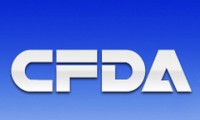-
Boehringer, Vanderbilt U to develop cancer MCL1 inhibitors in third team-up
- Source: fiercebiotech
- 447
- March 16, 2018
-
Patient death forces FDA to slap a hold on study using combo from Advaxis, AstraZeneca — biotech’s shares plunge
- Source: endpts
- 625
- March 15, 2018
-
Four health systems and VA plan to create nonprofit drug company
- Source: Medcitynews
- 412
- March 7, 2018
-
Viela Bio Spins Out of MedImmune; Raises Up to $250 Million in Series A Financing, 6 Dimensions Capital Leads Investment
- Source: finance.yahoo
- 475
- March 1, 2018
-
EMA accepts MAA for romosozumab in the treatment of osteoporosis
- Source: europeanpharmaceuticalreview
- 883
- February 2, 2018
-
AstraZeneca’s PARP Inhibitor Lynparza Gets Approval in Japan
- Source: finance.yahoo
- 678
- January 26, 2018
-
Biosimilar Avastin wins EU approval
- Source: Pharmatimes
- 567
- January 23, 2018
-
Pandion Therapeutics Announces $58 Million Series A Financing to Advance Tissue-Specific Immune Modulator Drugs
- Source: finance.yahoo
- 898
- January 22, 2018
-
Scholar Rock scoops $47M to trial SMA drug
- Source: fiercebiotech
- 494
- January 4, 2018
-
Bayer receives approval in China for Stivarga® (regorafenib) for the second-line systemic Treatment of liver cancer
- Source: investor.bayer
- 701
- December 14, 2017
your submission has already been received.
OK
Subscribe
Please enter a valid Email address!
Submit
The most relevant industry news & insight will be sent to you every two weeks.













